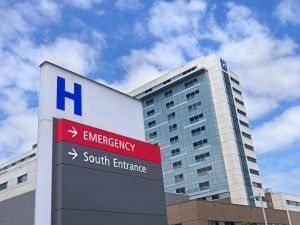Hospitals are one of the most critical infrastructures in our society, providing essential medical care and support to the sick and injured. It is imperative for hospitals to have a continuous and reliable power supply to ensure that medical equipment, facilities, and systems remain operational during power outages. This is where generators play a crucial role.
A generator is an excellent investment for hospitals as it provides an uninterrupted power supply in the event of a power outage. Hospitals rely on electricity to operate their critical medical equipment and ensure the safety of patients. A generator can provide backup power in case of power failures, ensuring that medical services are uninterrupted, and patients' needs are met.
Advantages of having a generator in a hospital:
- Continuity of critical medical services: The most significant advantage of a generator in a hospital is the continuity of critical medical services. In the event of a power outage, the generator can provide backup power to life-supporting equipment, such as ventilators, dialysis machines, and monitors. This ensures that the hospital can continue providing essential medical services to its patients.
- Emergency preparedness: A generator is an essential component of a hospital's emergency preparedness plan. Natural disasters such as hurricanes, tornadoes, and earthquakes can disrupt power supply for days, and having a generator ensures that the hospital can continue providing essential medical services during such emergencies.
- Increased patient safety: A generator can increase patient safety by ensuring that medical equipment and systems remain operational during a power outage. Patients in critical condition require constant monitoring, and any disruption in power supply can have severe consequences. A generator ensures that patients receive continuous medical care and monitoring, ensuring their safety.
Disadvantages of having a generator in a hospital:
- High cost: Generators are expensive to purchase and maintain, which can be a significant disadvantage for hospitals. The cost of installation, fuel, and maintenance can add up, making it a significant investment for hospitals.
- Noise pollution: Generators can produce significant noise pollution, which can be a concern for patients and staff. This can be mitigated by installing soundproofing measures or locating the generator in a remote area.
- Safety concerns: Generators can pose safety risks if not installed and maintained correctly. Fuel spills, carbon monoxide poisoning, and fire hazards are all potential risks that need to be addressed.
In conclusion, the advantages of having a generator in a hospital far outweigh the disadvantages. The continuity of critical medical services, emergency preparedness, and increased patient safety are significant benefits of having a generator. Although the cost of installation and maintenance, noise pollution, and safety concerns are potential disadvantages, they can be addressed through proper installation, maintenance, and safety protocols. Hospitals should consider investing in a generator to ensure that their critical medical services are uninterrupted during power outages.
If you require a hospital generator contact us now.
